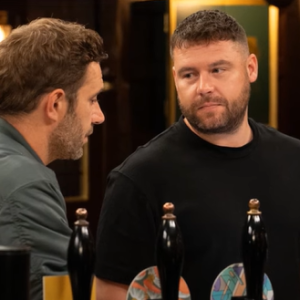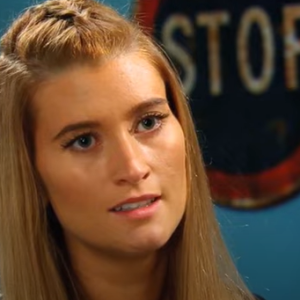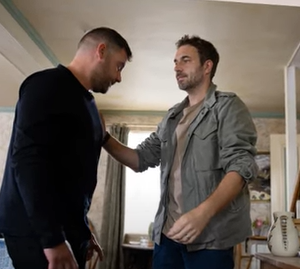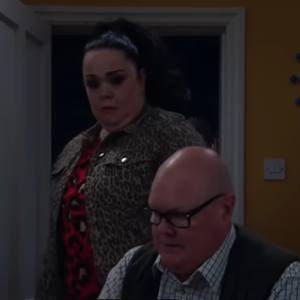Ray Walters arrived in the village like a storm in a designer suit — glossy, confident, and utterly magnetic — and from the very first moment he pulled up in that flash car you could sense the bad news simmering beneath the charm. Villagers swapped wary glances while viewers leaned forward: this is the kind of character soaps produce to undo people slowly rather than in spectacular, obvious ways. Ray doesn’t need to shout or throw punches; he tempers his threats with smiling eyes and a hand that feels reassuring until you realise it’s guiding you exactly where he wants you to go. That slow-burn menace is what makes him so chilling. Unlike the pantomime villain who is easy to spot and easier to hate, Ray is the wolf in tailored clothing — he offers warmth to the cold, a way out to the desperate, and then tightens the noose so gently no one notices the change until it’s almost too late.
At the centre of his predatory orbit stands Dylan — tired, jobless and hollowed out by the county lines nightmare he’s been desperate to escape. Dylan should be the village’s priority; he’s already paid a heavy price trying to break free. But Ray sees those ragged edges as opportunity rather than tragedy. Soap writers have long used the trope of “one quick job” to pivot a character from survival mode into catastrophe, and Ray’s offer plays precisely to that vulnerability: fast cash, protection, and a smiling promise that everything will look after itself. It’s devastatingly believable because it mirrors the real-world grooming of people in precarious situations — the romance of being ‘rescued’ twisted into leverage. Dylan’s internal battle will be brutal to watch: part of him wants to grasp at any lifeline, however dangerous, while the other part knows that repeating old patterns is a one-way ticket to ruin.
April’s involvement raises the stakes to another level entirely. She didn’t ask for this and she certainly didn’t deserve it, yet Ray’s magnetism doesn’t stop at individuals; it infects relationships. The moment she’s dragged into what he frames as a “one-off” favour, tension spikes. In soaps, those one-off moments are never isolated — they ripple. April’s protective instincts toward Dylan will clash with her own fear and confusion, and viewers will feel every pulse of that conflict. When someone like Ray wraps care and manipulation into the same gestures, allies become liabilities and trust becomes the most dangerous currency. The dread here isn’t just about one job going wrong; it’s about the way Ray could fray the bonds between young people who should be each other’s lifelines, turning solidarity into suspicion and love into guilt.
The psychological texture of Ray’s control is what makes this storyline feel distressingly real and compulsively watchable. He doesn’t coerce with brute force; he coaxes, flatters, and isolates, so that victims come to rely on him for validation as much as money. That form of domination is scarier precisely because it’s harder to dramatise with a single explosive scene — it creeps. Soap drama often excels at slow-motion demolitions of people’s lives, and Ray’s creeping influence promises a long, wrenching arc that will leave visible and invisible scars across the village. If the whispers about his role as a potential Mastermind behind local exploitation are true, then the writers are setting up a story that could reverberate through Emmerdale for months: reckonings with the past, agonising choices for Dylan and April, and a community forced to confront uncomfortable truths about how easily predators can operate under the radar. 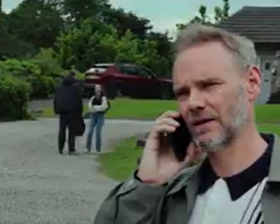
So where does that leave the viewer? On the edge of the sofa, heart in throat, hoping writers allow Dylan a route out that doesn’t demand another casualty. Emmerdale has handled youth exploitation stories before with a mix of rawness and sensitivity, and the hope is this plot will follow suit — exposing the mechanics of grooming, showing the long road to recovery, and not sanitising the experience. At the same time, the narrative pull of Ray as a charismatic villain is irresistible television: you want him stopped, you want the young people saved, and yet you can’t look away from the slow, inevitable tension of his manipulation. Will Dylan find an ally brave enough to cut him loose? Can April navigate her loyalty and protectiveness without being consumed? Or are we watching the first steps of another Emmerdale tragedy that leaves loved ones picking up pieces for months? Either way, the story promises to be a gut-punch and a conversation starter — the kind of drama that sparks outrage, empathy, and vital discussion long after the credits roll.
